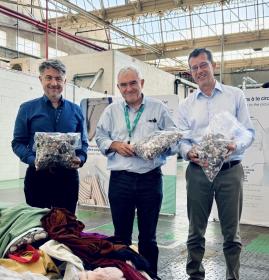Aachen Summer School: Strengthening German-Korean cooperation in 4D and robotics
The Aachen Summer School has established itself as an important platform for promoting cooperation between RWTH Aachen University and Seoul National University. The focus is on practice-oriented research projects in the field of 4D and robotics technologies, which have been successfully implemented for years at the Institut für Textiltechnik of RWTH Aachen University.
This year, the theme of the Summer School was soft robotics and 4D materials. Participating students had the opportunity to develop innovative concepts for gripping systems by working with various actuators and stepper motors.
The programme structure comprised two intensive weeks. In the first week, various sample projects, including a three-finger gripper, were presented and replicated. In the second week, students were able to develop a modular system under supervision and implement their own project ideas.
The International Office at RWTH Aachen University encouraged German students to take part in this unique opportunity during their stay in Korea. Associate Professor Howon Lee specifically promoted the summer school to German mechanical engineering students.
The participants consisted of mechanical engineers, electrical engineers, materials scientists and industrial engineers. Each group presented the results of their work in a final presentation.
Particularly noteworthy was the participation of Dr Hokyenong Rhee and Ms Jayoung Na from the German Academic Exchange Service (DAAD), who gave the students insights into possible funding programmes for studying abroad. This initiative underscores the motto of the summer school: ‘Let's shape the future together!’
This event impressively demonstrates how international cooperation in education can not only impart knowledge, but also build bridges between cultures – a decisive step towards an innovative future in the field of 4D and robotics.
RWTH Aachen ITA Seoul National University Deutscher Akademischer Austauschdienst (DAAD robotic 4D body scanning
RWTH Aachen, Institut für Textiltechnik































